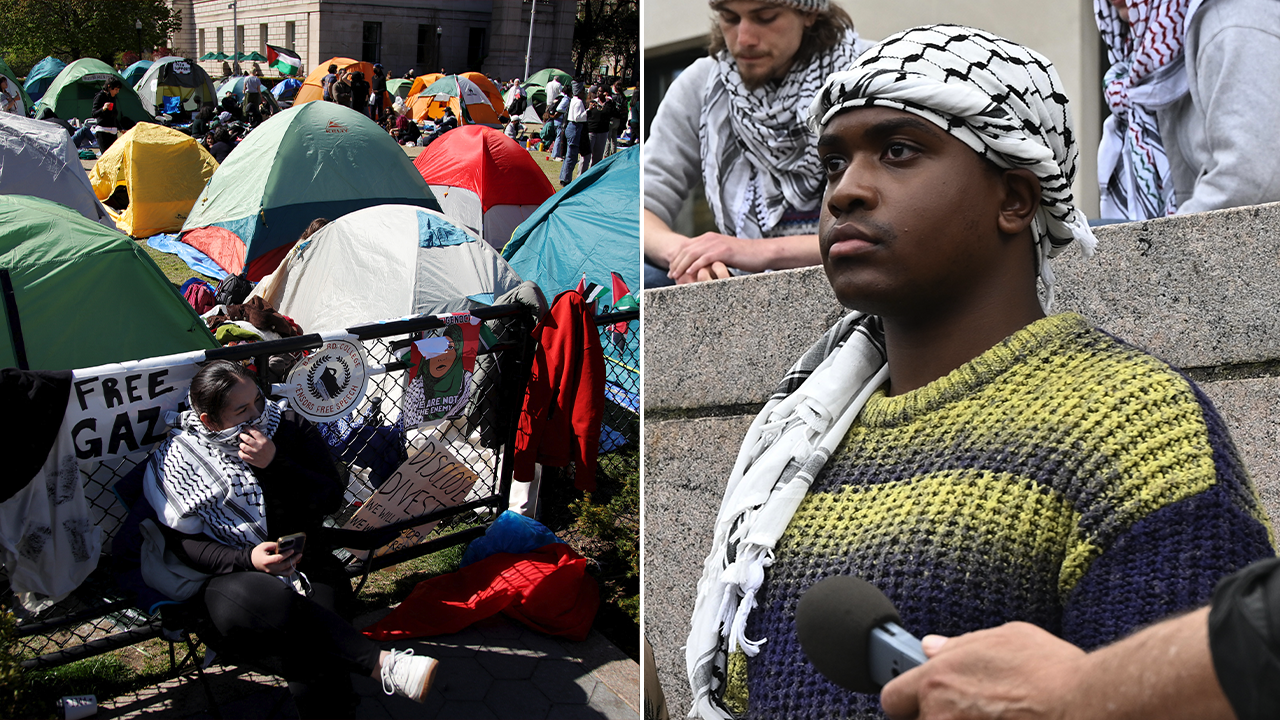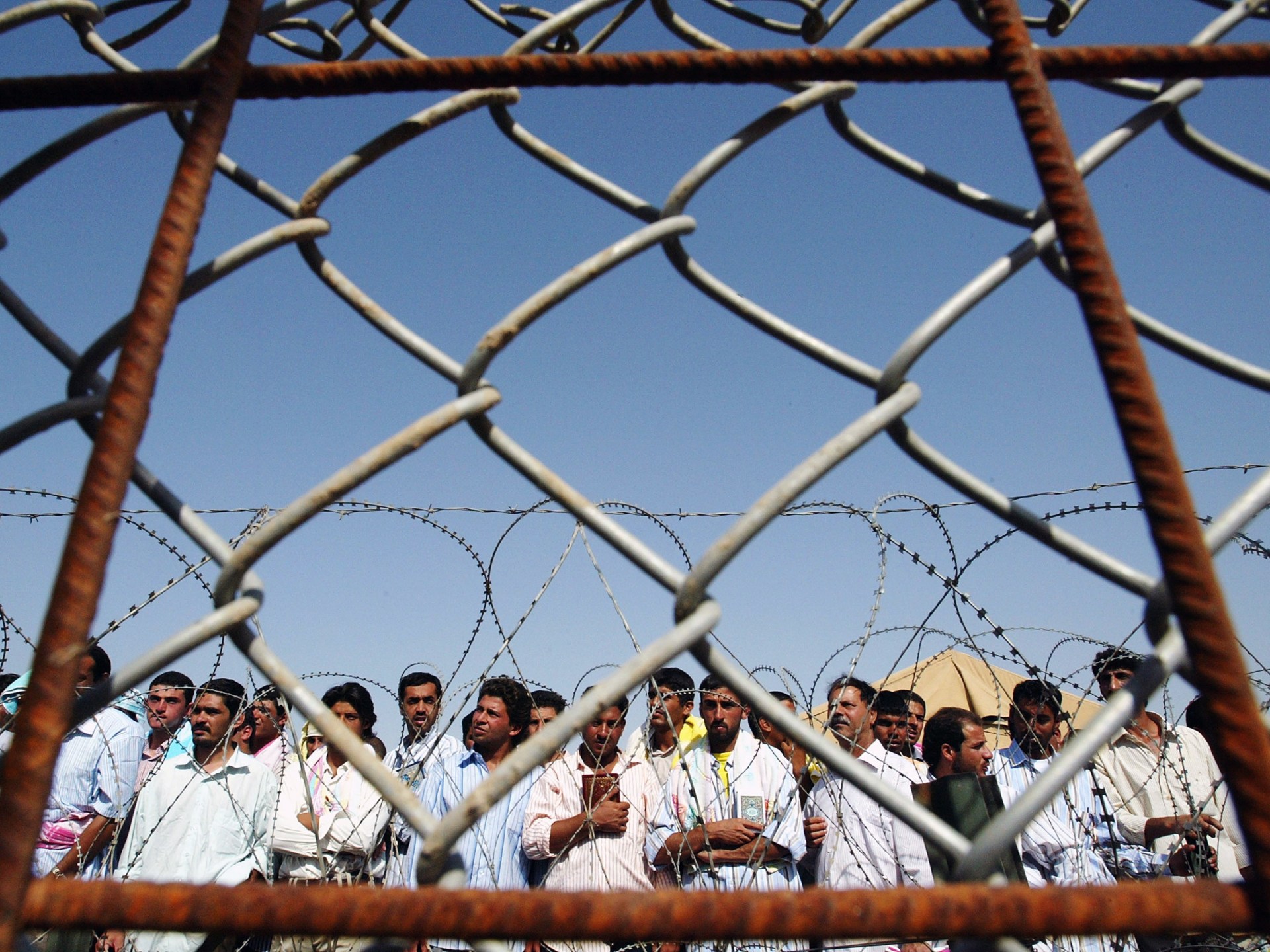World
Elderly retirees face big losses after Chinese trust goes bust, reflecting turbulent economy
CHENGDU, China (AP) — Some investors in a troubled trust fund in China are facing financial ruin under a government plan to return a fraction of their money, casualties of a slump in the property industry and a broader economic slowdown.
Sichuan Trust, headquartered in the southwest city of Chengdu, announced it was insolvent in 2020, stricken by sketchy accounting and failed investments in shopping malls and other projects. A deadline earlier this month to accept a 20%-60% “haircut” or loss on their investments has left some investors in deep financial trouble, according to public announcements and AP interviews with five people affected.
China’s economy, the world’s second largest, depends heavily on real estate development to drive growth and create jobs. Property prices and sales have languished after a crackdown on what leaders viewed as dangerous levels of borrowing, causing dozens of developers to default on their debts.
At the National People’s Congress session in Beijing last week, officials pledged to do more to protect investors. Premier Li Qiang said China would work to control risks and resolve the property crisis.
For the people who put their life savings into Sichuan Trust and similar entities, it’s likely too late. Around 300 of more than 8,000 investors refused to accept a government plan and are looking for legal help, a relative of one investor said. A few who attempted to come to Beijing during the congress to air their grievances were blocked by police, the relative said.
The ruling Communist Party faces a dilemma: Debt is a problem, but falling home prices lead people to scrimp on spending. That squeezes companies’ sales, so they lay off workers and cut back on investment. The result: slowing growth and less wealth to go around.
Inevitably, someone will end up losing out as China’s debt crisis unwinds, said Tsinghua University finance professor Michael Pettis.
“Nobody wants to absorb the loss. If you assign it to households, you weaken consumption even more,” Pettis said. “It’s got to be assigned. And that’s the political problem.”
Trusts are a cross between a bank and an investment fund. Some advertised their offerings as reliable, high interest government-backed accounts. They’re actually private entities that fund projects like factories and shopping malls. Weak disclosure requirements allowed them to use money from new investors to pay what they owed earlier ones, a set-up somewhat like a Ponzi scheme.
“Financial supervision was relatively loose in the past, so the design of these products, including systems for protecting investors’ rights and interests, had serious issues,” said Zhu Zhenxin, chief analyst at Rushi Finance Institute in Beijing. “If underlying assets of financial products won’t generate enough returns to pay such high interest rates, default is inevitable.”
The troubles at Sichuan Trust first surfaced when the government began restricting new sales of trust products in 2020. Without revenue from new investors, it couldn’t pay its outstanding debts.
That summer, Sichuan Trust announced it had 25.3 billion RMB ($3.5 billion at the time) in debts it couldn’t repay. The provincial government and banking regulators took control, ousting the management, reorganizing its books and launching an investigation.
Hundreds of investors staged weekly protests outside the company’s headquarters and their losses became a political issue.
In 2021, police detained Sichuan Trust’s majority shareholder Liu Canglong, a mining and real estate tycoon who was once the richest man in Sichuan, a province of more than 80 million people. He is accused of embezzling trust funds.
In December, the trust announced it would return investors’ funds according to a sliding scale of the original investment. The larger the investment stake, the larger the loss.
That sparked more protests.
“We’re extremely anxious,” one investor who asked not to be named told The AP. “It’s so cruel, the amount of money they’re giving us is so little.”
A person answering Sichuan Trust’s hotline said the company does not take interviews and would not provide comment. Sichuan Trust, the Sichuan provincial government and the China Banking and Insurance Regulatory Commission did not respond to faxed and emailed requests for comment.
The plan to return funds “appropriately favors small and medium-sized investors,” Sichuan Trust said earlier in a public statement, calling it “fair.”
Those protesting fear say they’ve been harassed and intimidated, subjected to police interrogations and threats from their children’s employers. They’ve been barred from leaving Chengdu or, at times, their housing compounds.
On a recent visit to the company’s headquarters, dozens of uniformed officers, half a dozen police vehicles and an empty bus were parked outside. More than a dozen plainclothes agents who refused to identify themselves followed two AP journalists around.
Earlier, a Dutch journalist was shoved to the ground and forced into a police vehicle when he attempted to approach protesting investors.
“They abduct you, they threaten your children,” said another investor, who also did not want to be identified due to fears of more police harassment. “They have so many dirty tricks.”
Analysts say investors were bound to suffer big losses given the size of Sichuan Trust’s debts. Chinese media have reported on the problem, but focused on alleged wrongdoing by those who ran the trust, presenting the repayment plan as a fair solution.
Some of the more than 95% of investors who signed off on the plan said they agreed under duress and were threatened with bigger losses if they didn’t meet a March 5 deadline.
Trusts have a high minimum investment — for Sichuan Trust it was generally 300,000 yuan ($42,000) — and many people believed mostly the relatively well-off were affected.
However, some investors were retirees who said they met the investment threshhold by collecting money from friends and relatives who now want their money back. For them, Sichuan Trust’s default is a calamity.
“They’re so poor, they don’t have money to spend,” said a relative of investors who lost money to the trust. “They don’t have money for medical treatment. They have to borrow money to survive.”
Those interviewed said the name Sichuan Trust led them to believe it was a trustworthy financial institution like a bank, with a steady, fixed interest rates, rather than a risky investment fund. They were attracted by the 8% or 9% interest rates it promised – multiple times higher than traditional savings accounts. Some financially unsophisticated retirees invested large chunks of their life savings.
“The country said trusts are very safe, like banks,” one of the people said. “We didn’t think there would be problems.”
Instead of enjoying their retirements, two of the people said, they’ve had to borrow money from relatives and cut back on their expenses.
“We ordinary people are miserable,” another investor said. “The corruption is so serious.”
China’s roughly $3 trillion trust sector is part of a large “shadow banking” industry in the country, which for decades supplied credit to entrepreneurs and households not served by the state-run banking system. Concerned over speculation and illegal practices, authorities have tightened controls. In 2020, regulators declared victory in cleaning up China’s online peer-to-peer lending industry, or P2P.
Wealth management companies also have gotten into trouble.
“We believe risks could increase, potentially affecting more financial-sector entities, if China’s economic recovery continues to lose momentum and the property sector’s distress is sustained,” Fitch Ratings said in a report after the collapse of another big trust company, Zhengrong.
Officials and analysts say crackdowns have been necessary, but investors footing the bill are questioning how they’ve been carried out.
“I support the Communist Party very much,” one of the investors said. “But some people are blackening the Party’s name.”
___
AP Business Writer Elaine Kurtenbach contributed to this story.

World
Biden will give election-year roast at annual correspondents' dinner as protests await over Gaza war
WASHINGTON (AP) — President Joe Biden is set to deliver an election-year roast Saturday night before a large crowd of journalists, celebrities and politicians against the backdrop of growing protests over his handling of the Israel-Hamas war.
In previous years, Biden, like most of his predecessors, has used the annual White House Correspondents’ Association dinner to needle media coverage of his administration and jab at political rivals, notably Republican rival Donald Trump.
But with protesters pledging to gather outside the dinner site, any effort by Biden to make light of Washington’s foibles and the pitfalls of the presidential campaign will have to be balanced against concerns over the war and humanitarian crisis in Gaza and the perils for journalists covering the conflict. Criticism of the Biden administration’s support for Israel’s 6-month-old military offensive in Gaza has spread through American college campuses, with students pitching encampments in an effort to force their universities to divest from Israel. Counterprotests back Israel’s offensive and complain of antisemitism.
Biden’s speech before an expected crowd of nearly 3,000 people at a Washington hotel will be followed by entertainer Colin Jost from “Saturday Night Live,” who is sure to take some pokes at the president as well as his opponents.
There will also likely be a spotlight on the many journalists detained and otherwise persecuted around the globe for doing their jobs, including Wall Street Journal reporter Evan Gershkovich, who has been imprisoned in Russia since March 2023.
But before the president gets to the Washington Hilton — where the event has been held for decades — he was expected to pass hundreds of people rallying along the path of Biden’s motorcade and nearby to bring attention to the high numbers of Palestinian and other Arab journalists killed by Israel’s military since the war began in October.
Law enforcement, including the Secret Service, have instituted extra street closures and other measures to ensure what Secret Service spokesman Anthony Guglielmi said would be the “highest levels of safety and security for attendees.”
The agency was working with Washington police to protect demonstrators’ right to assemble, Guglielmi said. However, “we will remain intolerant to any violent or destructive behavior.”
More than two dozen journalists in Gaza wrote a letter last week calling on their colleagues in Washington to boycott the dinner altogether.
“The toll exacted on us for merely fulfilling our journalistic duties is staggering,” the letter states. “We are subjected to detentions, interrogations, and torture by the Israeli military, all for the ‘crime’ of journalistic integrity.”
One organizer complained that the White House correspondents’ association — which represents the hundreds of journalists who cover the president — largely has been silent since the first weeks of the war about the killings of Palestinian journalists. WHCA did not respond to request for comment.
According to a preliminary investigation released Friday by the Committee to Protect Journalists, nearly 100 journalists have been killed covering the war in Gaza. Israel has defended its actions, saying it has been targeting militants.
“Since the Israel-Gaza war began, journalists have been paying the highest price— their lives—to defend our right to the truth. Each time a journalist dies or is injured, we lose a fragment of that truth,” CPJ Program Director Carlos Martínez de la Serna said in a statement.
Sandra Tamari, executive director of Adalah Justice Project, a U.S.-based Palestinian advocacy group that helped organize the letter from journalists in Gaza, said “it is shameful for the media to dine and laugh with President Biden while he enables the Israeli devastation and starvation of Palestinians in Gaza.”
In addition, Adalah Justice Project started an email campaign targeting 12 media executives at various news outlets — including The Associated Press — expected to attend the dinner who previously signed onto a letter calling for the protection of journalists in Gaza.
___ Associated Press writers Mike Balsamo and Fatima Hussein contributed to this report.
World
Ukraine lawmaker, 34, fights for Kharkiv in the public square

Mariia Mezentseva is a face of the war in Ukraine.
At just 34 years old and a member of Ukraine’s parliament, her formal tasks include looking into ways Ukraine can integrate into the rest of Europe’s institutions.
But, what really has gotten her attention are her posts about her hometown, Kharkiv. It has a population of 1.3 million people, just 20 miles from the northeast border with Russia.
From the beginning, Putin has wanted to take it over. In 2022, Ukrainians pushed them back.
However, in recent months, Russian attacks have grown furious, knocking out residential areas, power infrastructure, even the city’s huge TV tower.
Ukrainian parliament member Mariia Mezentseva in Kharkiv. (Mariia Mezentseva)
KEY NATO ALLY SHOCKS WITH ITS ‘SINGLE LARGEST’ PLEDGE TO UKRAINE: ‘THEY NEED OUR SUPPORT’
Moscow, in fact, made clear it has wanted to turn Kharkiv into a demilitarized zone so it would not threaten Russia.
Critics said Moscow has tried to turn Kharkiv into Aleppo, the Syrian rebel stronghold Russia flattened in its support of Assad in Damascus.
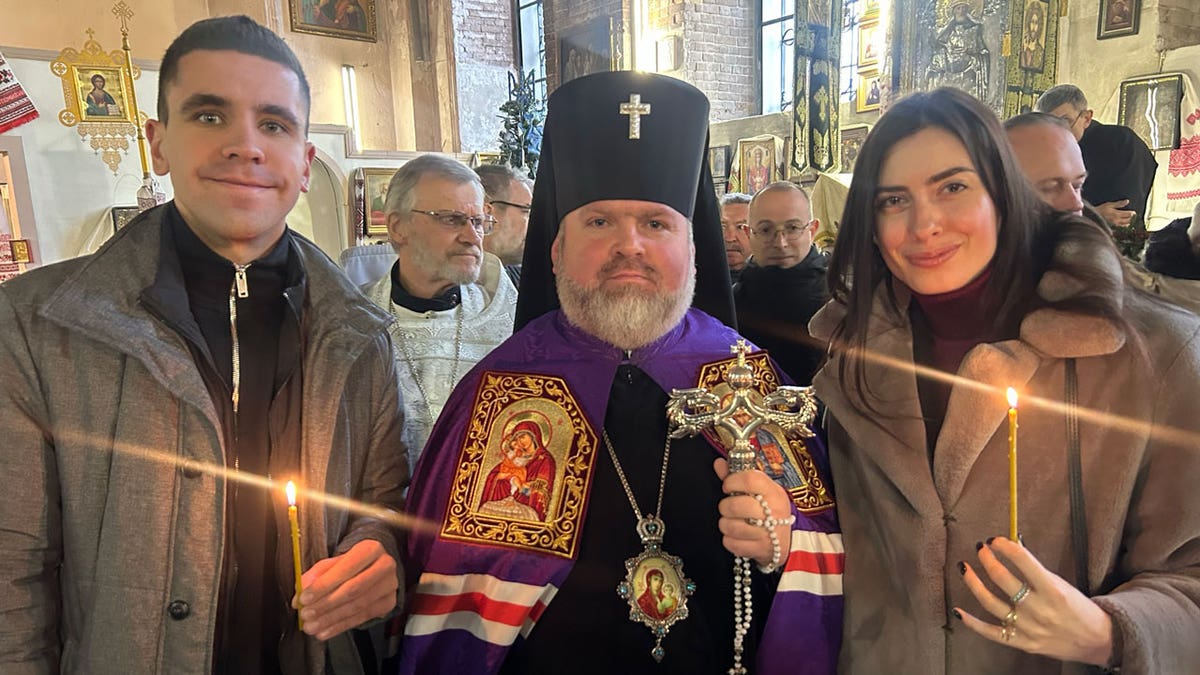
Ukrainian parliament member Mariia Mezentseva has taken her fight to social media. (Mariia Mezentseva)
Mezentseva regularly has posted shots of damage, rescue and relief efforts in Kharkiv, branding Russian efforts “genocidal actions.”
She generally has exuded hope, especially for the recent package of U.S. military aid for Ukraine which would benefit her home area.

Ukrainian parliament member Mariia Mezentseva standing in front of a military vehicle. (Mariia Mezentseva)
The package, Mezentseva said, “will serve the purpose for sure.”
Basically, for the time being at least, it will keep the city alive.
World
Zelenskyy warns of Russian nuclear risks on Chernobyl anniversary
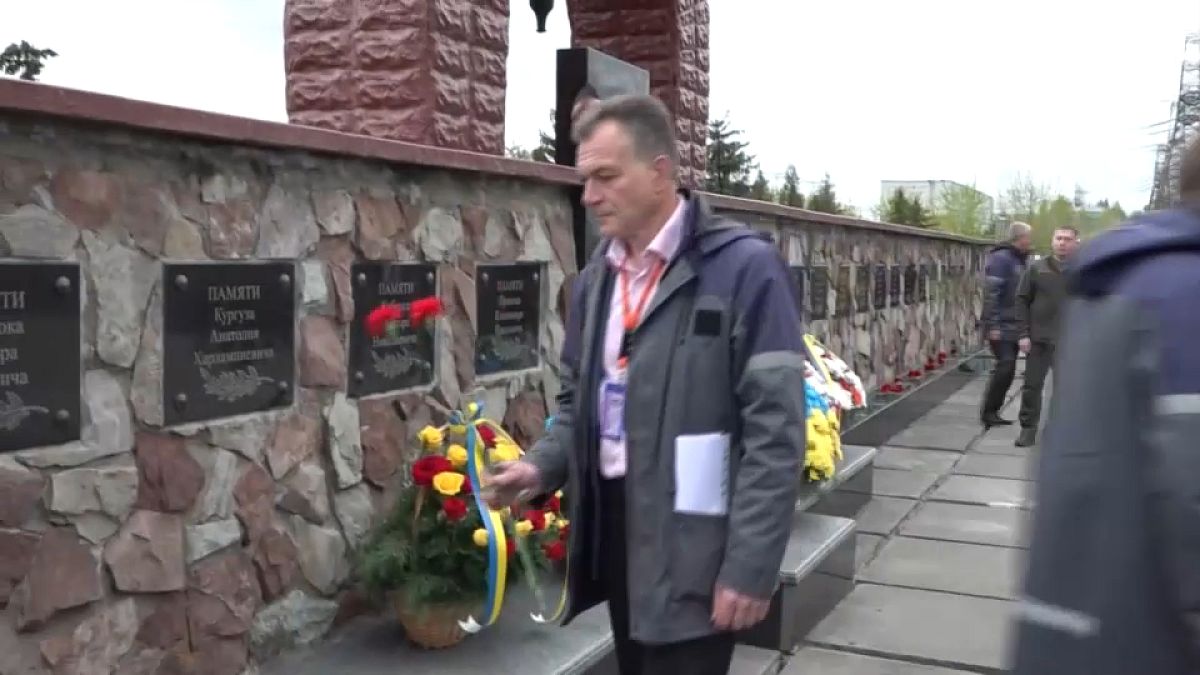
Ukrainian President Volodymyr Zelenskyy warned on Friday that the safety of Europe’s largest nuclear power plant Zaporizhzhia is threatened by Russia’s war against Ukraine, as the country marked the 38th anniversary of the Chernobyl disaster.
On the 38th anniversary of the Chernobyl nuclear power plant disaster on Friday, Ukrainian President Volodymyr Zelenskyy warned of the risks surrounding the Zaporizhzhia nuclear facility, which has been at the centre of nuclear safety crisis since Russia’s invastion of Ukraine.
Even under the shadow of the Chernobyl disaster in 1986, Zelenskyy said Russian forces were not taking the safety of the plant seriously.
Russian forces seized the Zaporizhzhia nuclear power plant in southern Ukraine in the first days of its 2022 invasion.
Both sides regularly accuse each other of endangering safety at the site, Europe’s largest nuclear facility.
“For 785 days now, Russian terrorists have held hostage the Zaporizhzhia NPP,” Zelenskyy wrote on X, formerly Twitter. “And it is the entire world’s responsibility to put pressure on Russia to ensure that ZNPP is liberated and returned to full Ukrainian control, as well as that all Ukrainian nuclear facilities are protected from Russian strikes.”
“This is the only way to prevent new radiation disasters, which the Russian occupiers’ presence at ZNPP constantly threatens.”
The Chernobyl explosion in 1986 is considered the worst nuclear accident in history in terms of the scale of contamination and the number of victims. The detonation in the reactor zones caused radioactive contamination that directly contaminated a radius of tens of kilometres, and wind and water movement carried nuclear contamination further afield.
-

 Movie Reviews1 week ago
Movie Reviews1 week agoMovie Review: The American Society of Magical Negroes
-

 World1 week ago
World1 week agoIf not Ursula, then who? Seven in the wings for Commission top job
-

 Kentucky1 week ago
Kentucky1 week agoKentucky first lady visits Fort Knox schools in honor of Month of the Military Child
-
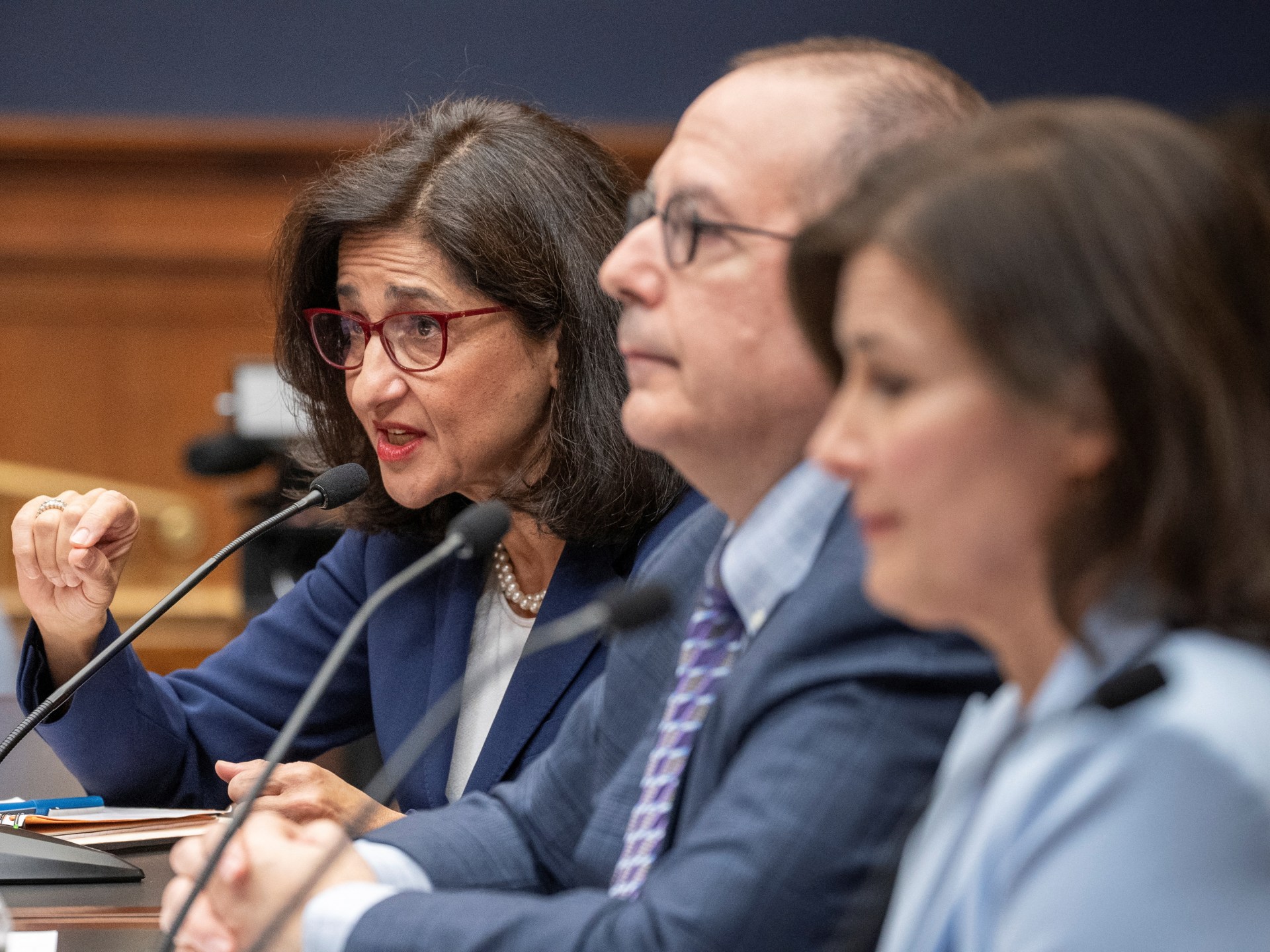
 World1 week ago
World1 week agoColumbia University leaders face scrutiny over anti-Semitism on campus
-

 News1 week ago
News1 week agoHouse passes bill requiring warrant to purchase data from third parties
-

 Politics1 week ago
Politics1 week agoTrump trial: Jury selection to resume in New York City for 3rd day in former president's trial
-
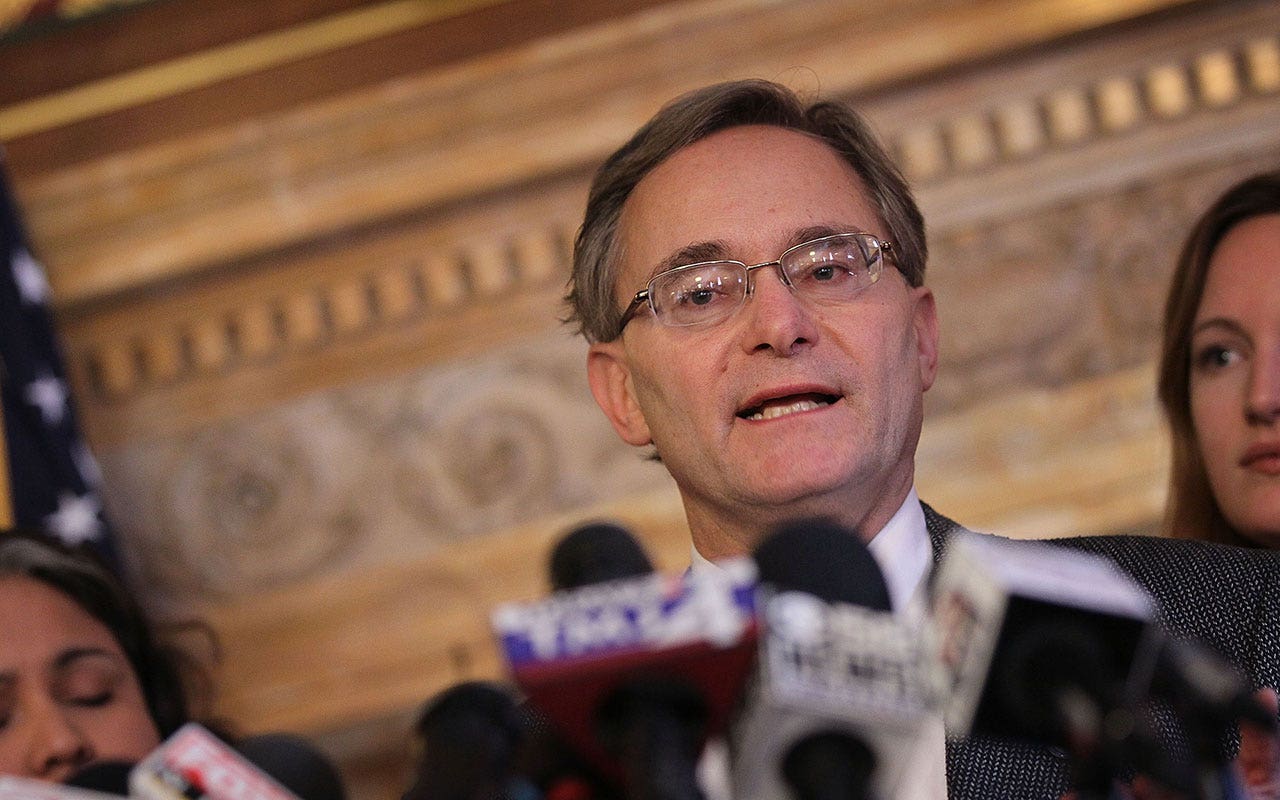
 Politics1 week ago
Politics1 week agoFormer Wisconsin Democratic Rep. Peter Barca launches congressional comeback bid
-
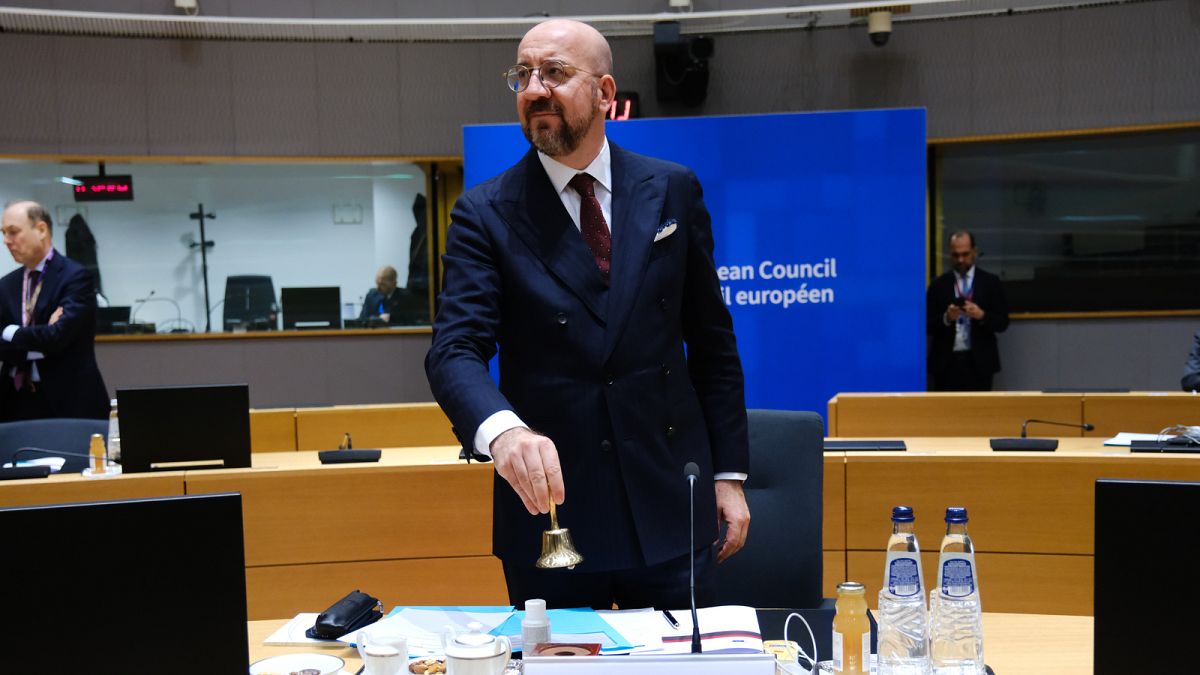
 World1 week ago
World1 week agoEU leaders weigh Lebanon partnership in response to Middle East crisis

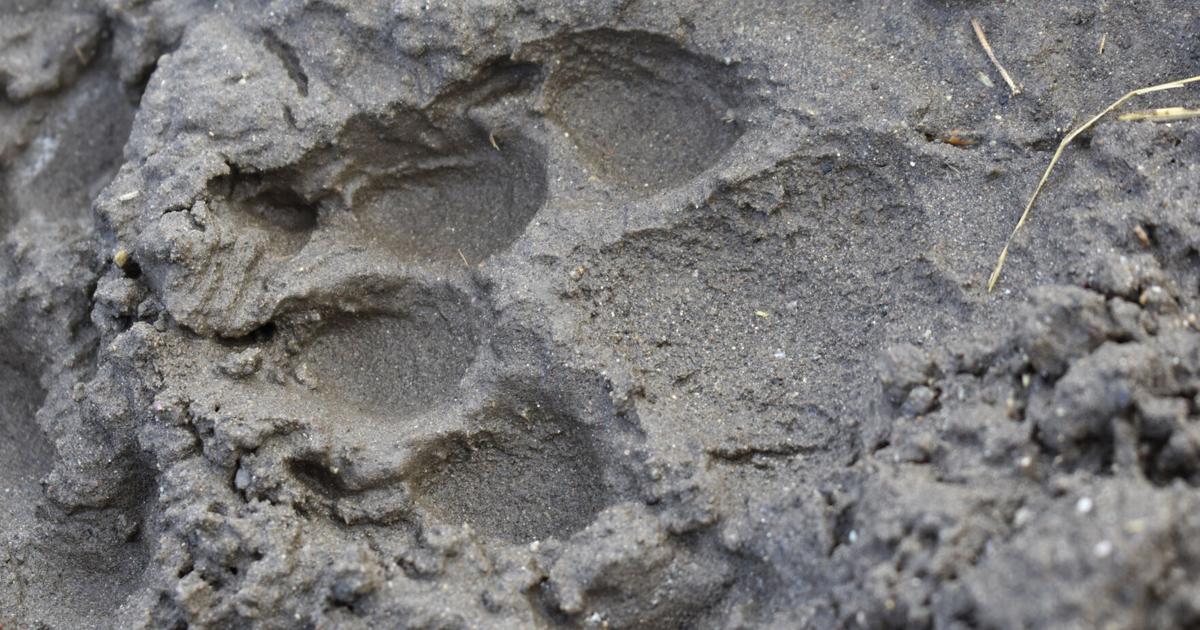

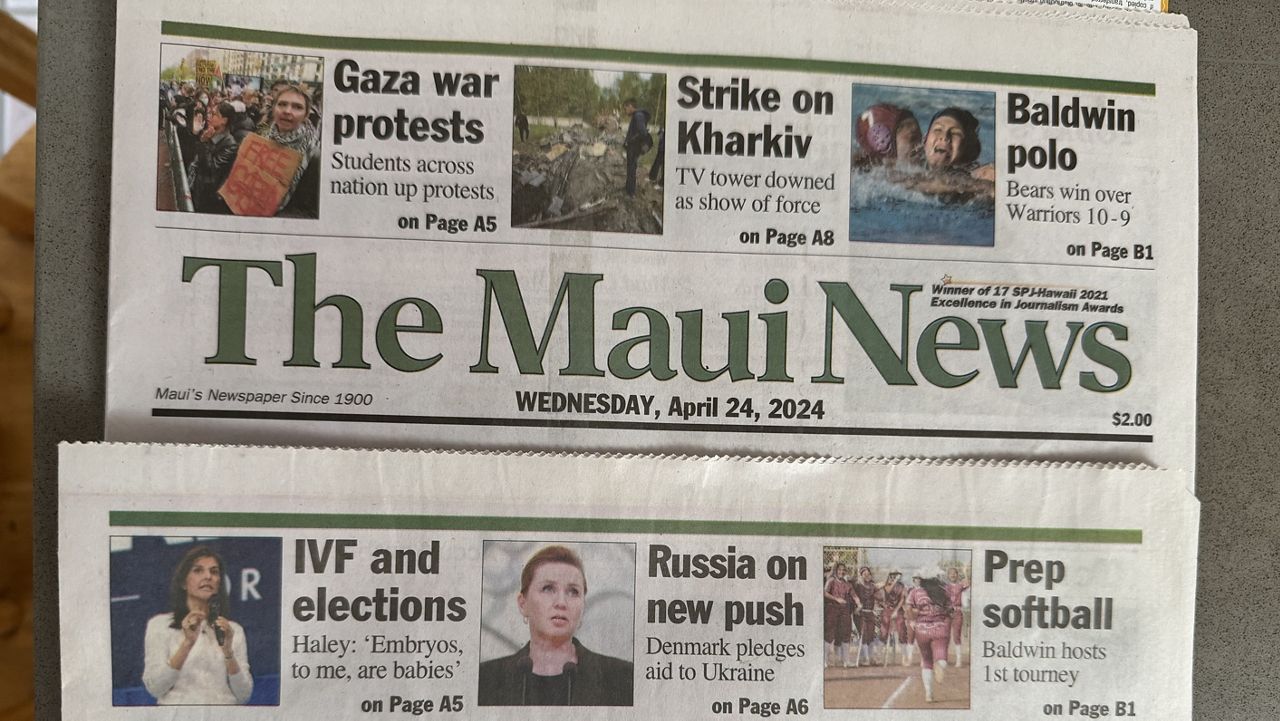



/cdn.vox-cdn.com/uploads/chorus_asset/file/25255185/246965_vision_pro_VPavic_0001.jpg)







